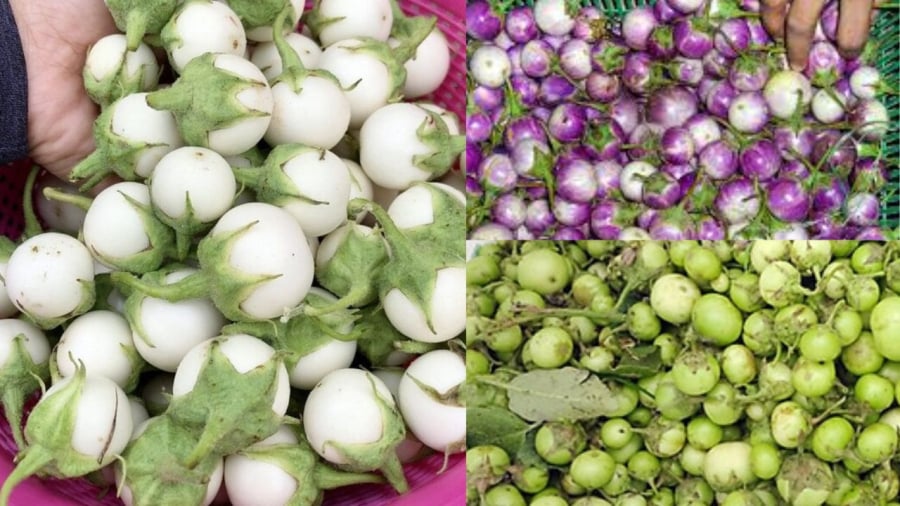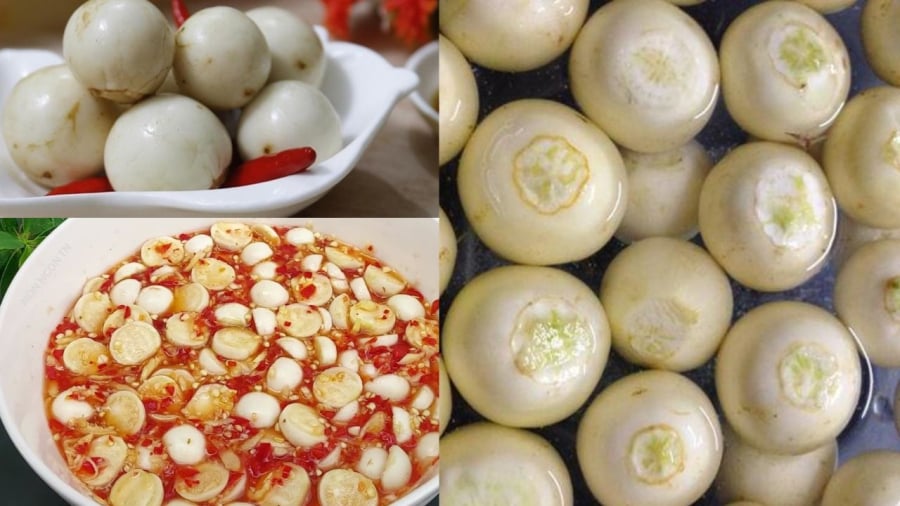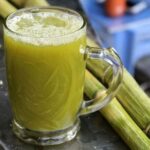Green eggplants are a common ingredient in Vietnamese cuisine, with popular dishes such as pickled green eggplants, fresh green eggplants, stir-fried green eggplants, and green eggplants with beans. However, consuming green eggplants improperly can be harmful to your health.
Green eggplants naturally contain solanine, a toxic substance that can be harmful if not prepared correctly.
Green eggplants naturally contain solanine, a type of natural toxin commonly found in nightshade vegetables such as eggplants and potatoes. Solanine can cause poisoning if it accumulates in large doses in the body, leading to symptoms such as nausea, vomiting, diarrhea, headache, dizziness, and even serious health risks or death at higher doses (3-6 mg/kg body weight).

This toxin is destroyed when the eggplants are soaked in water, cooked at high temperatures, or properly fermented. However, due to a lack of knowledge, many people do not prepare them correctly, leading to harmful consequences. Even if the toxin level is not high enough to cause immediate poisoning, it can still build up over time.
Three common mistakes when consuming green eggplants that can be harmful to your health:
In addition to improper preparation, there are three common habits when consuming green eggplants that can be detrimental to your health:
1. Consuming freshly pickled eggplants (not sufficiently sour): Many households and restaurants, due to time constraints, often use vinegar to speed up the pickling process. However, the eggplants have not actually soured yet.
Freshly pickled eggplants that have not undergone sufficient fermentation still contain high levels of solanine. Additionally, they may contain nitrates, which, under the influence of microorganisms in an uncontrolled brine environment, can convert to nitrites—a substance linked to an increased risk of cancer.
These eggplants also tend to have a spicy, pungent taste, indicating that they have not undergone sufficient fermentation to be safe for consumption.

2. Consuming large amounts of pickled eggplants over a long period: Pickled eggplants are usually very salty, and frequent consumption can lead to excessive salt intake, putting strain on the kidneys and increasing the risk of cardiovascular diseases, high blood pressure, and even digestive tract cancers.
Therefore, excessive and regular consumption of pickled eggplants can silently harm your health if not controlled.
3. Storing pickled eggplants in recycled paint or plastic containers: Some households, to save money, use old plastic containers or recycled paint buckets for pickling eggplants. However, these containers are often not produced according to food safety standards and may contain residual colorants, chemical solvents, or industrial additives, even after thorough washing.
When in prolonged contact with the slightly acidic pickled eggplants, these toxins can leach into the food and, subsequently, your body, leading to chronic poisoning, cancer, obesity, and other metabolic disorders.
Additionally, pickling eggplants with excessive salt, or cooking them without proper preparation (soaking or boiling), can also be detrimental to your health.
Tips for consuming green eggplants in a healthy way:
Despite the potential risks, green eggplants, when prepared correctly, can be a delicious and healthy addition to your diet. According to traditional medicine, green eggplants have a sweet taste and cold properties, helping to disperse blood, reduce inflammation, and promote bowel movement. Modern nutritional analysis shows that 100g of green eggplants contain:
- 1.5g of protein
- 12mg of calcium
- 0.7mg of iron
- 18mg of magnesium
- 22.1mg of potassium
- 0.3mg of zinc
- Soak and thoroughly wash green eggplants before cooking. Soaking helps remove the plant’s natural resin, which is toxic.
- When pickling eggplants, ensure sufficient fermentation until they are sour; do not consume them if they still have a spicy, pungent taste.
- Do not consume raw or freshly pickled eggplants.
- Boiling or thoroughly cooking green eggplants helps reduce the solanine toxin.
- Avoid using recycled containers, paint buckets, or thin plastic containers for pickling; opt for specialized ceramic or glass jars instead.
- Do not consume eggplants with a strange odor or those that have been stored for too long.
- Consume eggplants in season and avoid buying out-of-season eggplants, as they may contain higher levels of preservatives.
- Avoid over-pickling eggplants with excessive salt, and limit the consumption of heavily salted eggplants.
7 Supermarket Items Employees Say Are Not Worth Buying: Even on Sale, Avoid Number 2
“When it comes to grocery shopping, it’s crucial for consumers, especially health-conscious women, to be vigilant about the quality of the food they purchase. The following article delves into the types of food items that might not meet the required standards and how to make informed choices when shopping at supermarkets.”






































